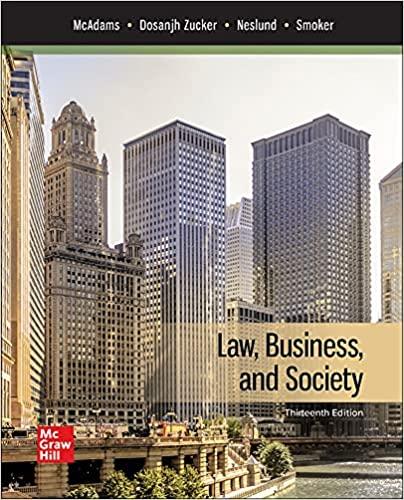This is a declaratory judgment action, attacking the constitutionality of Title II of the Civil Rights Act
Question:
This is a declaratory judgment action, attacking the constitutionality of Title II of the Civil Rights Act of 1964. [The lower court found for the United States.] THE FACTUAL BACKGROUND AND CONTENTIONS OF THE PARTIES . . . Appellant owns and operates the Heart of Atlanta Motel, which has 216 rooms available to transient guests. The motel is located on Courtland Street, two blocks from downtown Peachtree Street. It is readily accessible to interstate highways 75 and 85 and state highways 23 and 41. Appellant solicits patronage from outside the State of Georgia through various national advertising media, including magazines of national circulation; it maintains over 50 billboards and highway signs within the state, soliciting patronage for the motel; it accepts convention trade from outside Georgia, and approximately 75 percent of its registered guests are from out of state. Prior to passage of the act the motel had followed a practice of refusing to rent rooms to Negroes, and it alleged that it intended to continue to do so. In an effort to perpetuate that policy this suit was filed. The appellant contends that Congress in passing this act exceeded its power to regulate commerce under [Article I] of the Constitution of the United States. . . .
Questions
1. In your judgment, does the Commerce Clause afford the federal government the authority to regulate a local business like the Heart of Atlanta Motel? Explain.
2. Should the federal government regulate local business to further the cause of racial equity? Explain.
3. What arguments were offered by the government to establish that the Heart of Atlanta racial policy affected interstate commerce? Are you persuaded by those arguments? Explain.
4. What test did the Court articulate to determine when Congress has the power to pass legislation based on the Commerce Clause?
5. Ollie’s Barbecue, a neighborhood restaurant in Birmingham, Alabama, discriminated against Black customers. McClung brought suit to test the application of the public accommodations section of the Civil Rights Act of 1964 to his restaurant. In the suit, the government offered no evidence to show that the restaurant ever had served interstate customers or that it was likely to do so. Decide the case. See Katzenbach v. McClung, 379 U.S. 294 (1964).
6. Juan Paul Robertson was charged with various narcotics offenses and for violating the federal Racketeer Influenced and Corrupt Organizations Act (RICO) by investing the proceeds from his unlawful activities in an Alaskan gold mine. He paid for some mining equipment in Los Angeles and had it shipped to Alaska. He hired seven out-of-state employees to work in the Alaskan mine. Most of the resulting gold was sold in Alaska, although Robertson transported $30,000 in gold out of the state. He was convicted on the RICO charge but appealed, claiming that the gold mine was not engaged in or affecting interstate commerce. Was Robertson’s gold mine engaged in or affecting interstate commerce? Explain. See United States v. Juan Paul Robertson, 115 S. Ct. 1732 (1995).
Step by Step Answer:

Law Business And Society
ISBN: 9781260247794
13th Edition
Authors: Tony McAdams, Kiren Dosanjh Zucker, Kristofer Neslund, Kari Smoker





